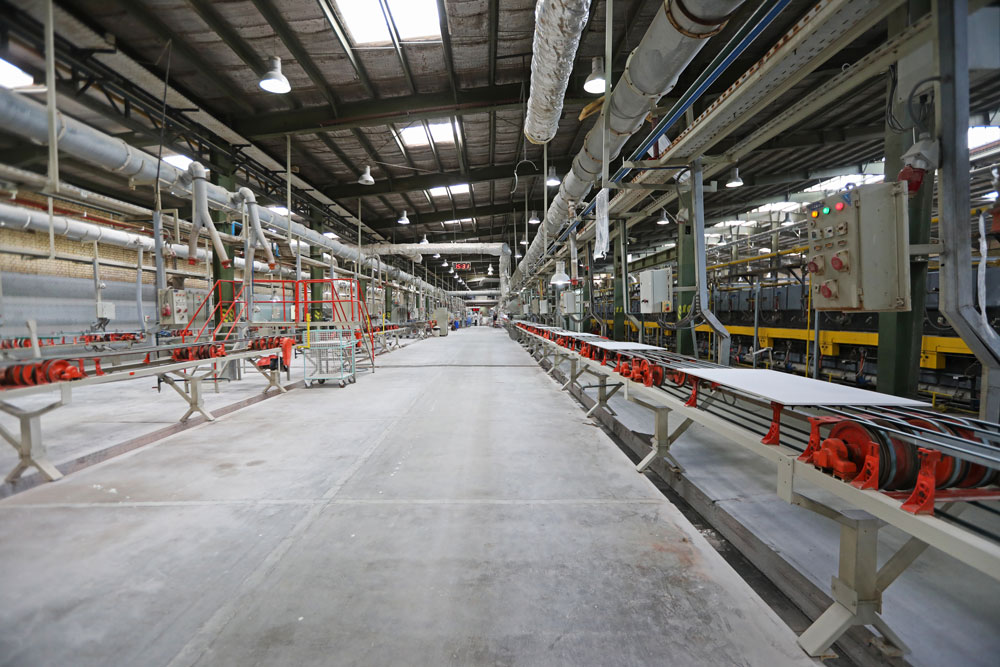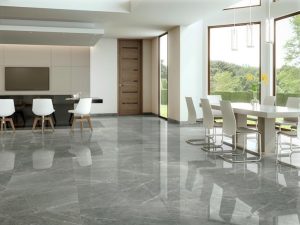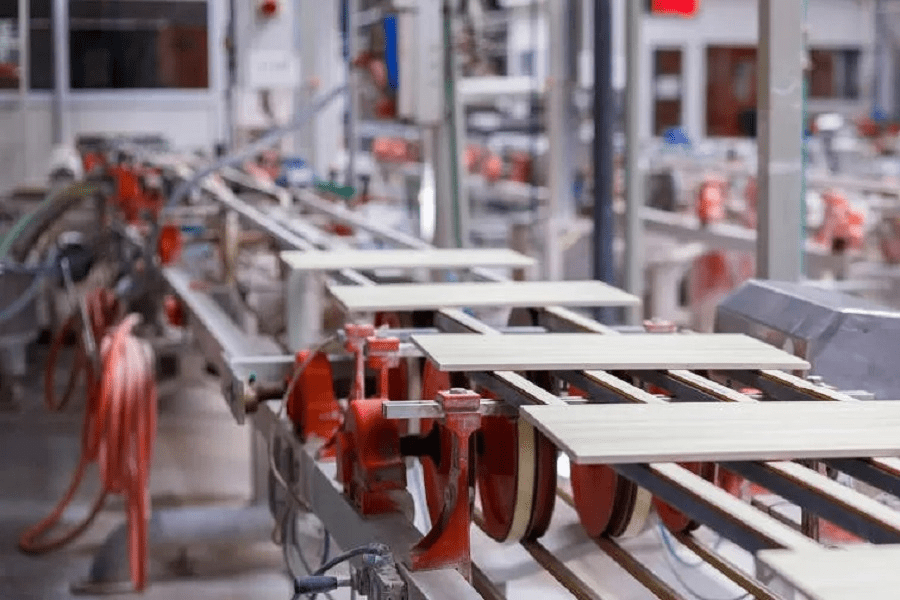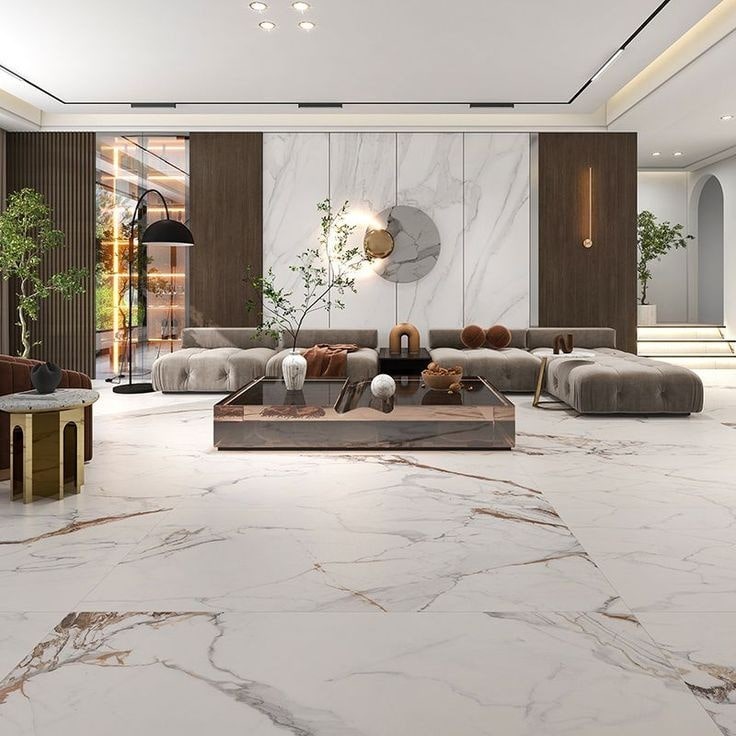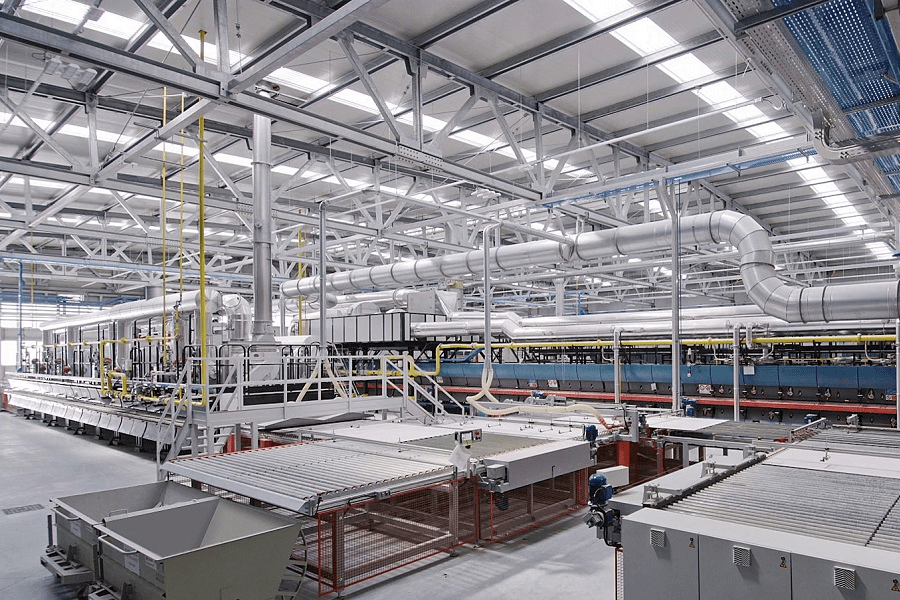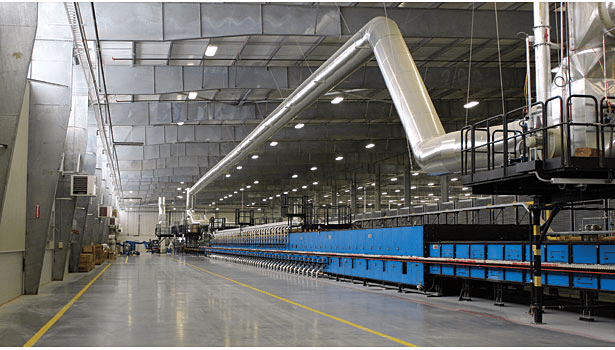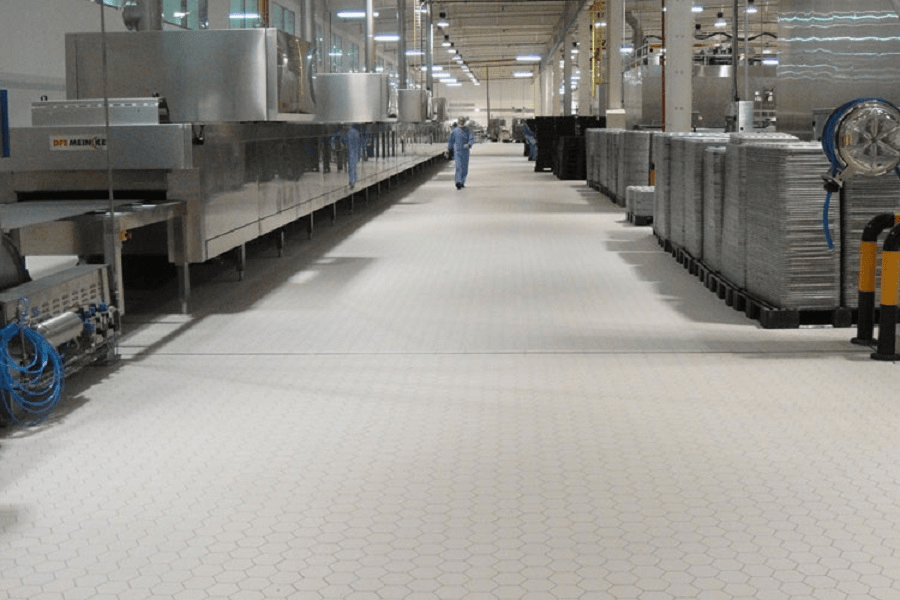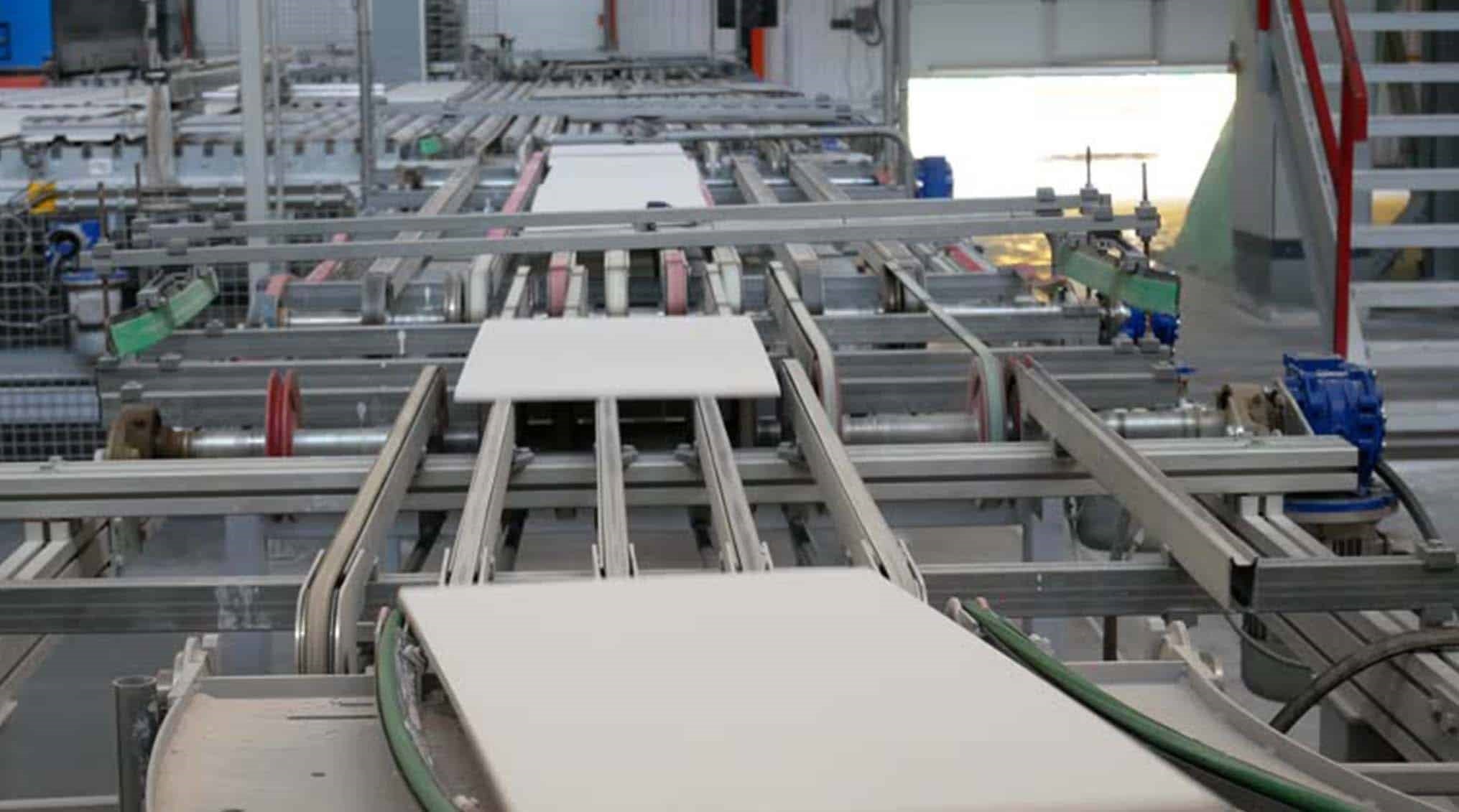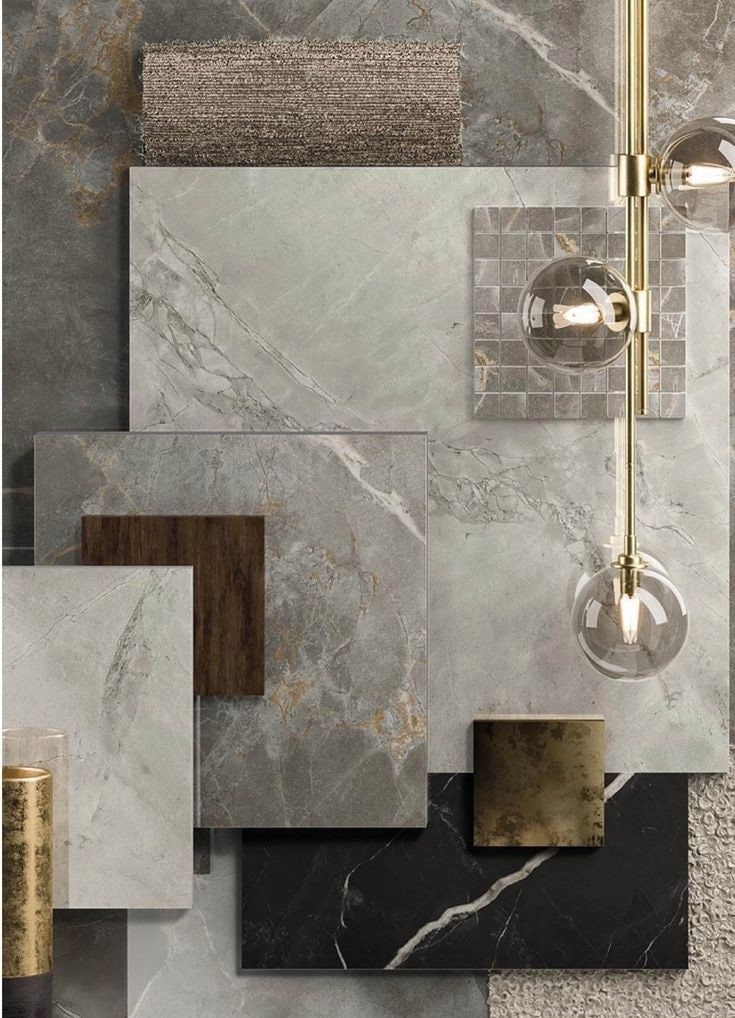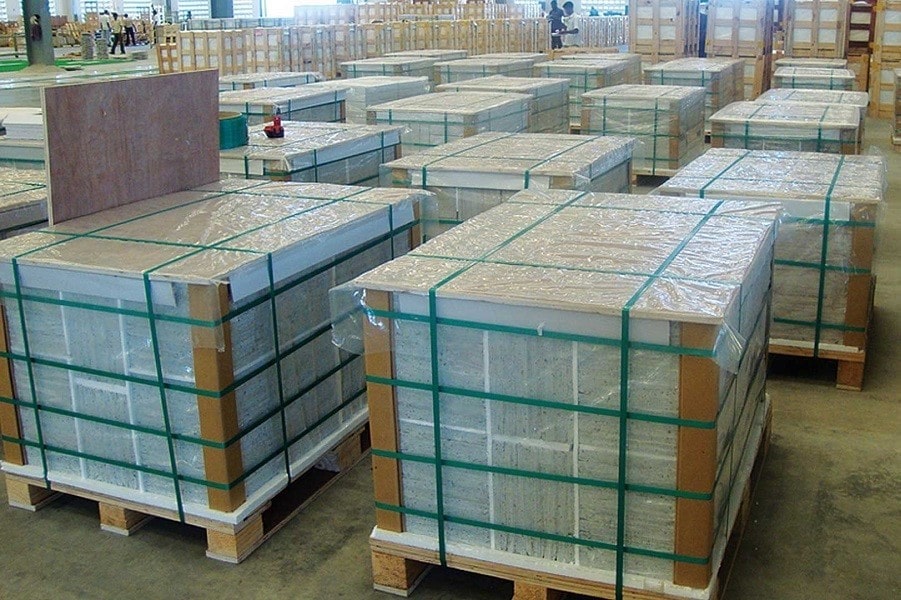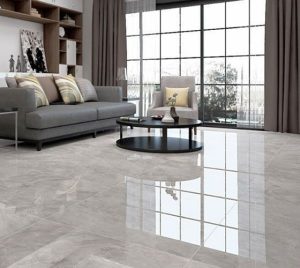Iranian tile and ceramic factories: Exporting excellence with superior trade services
Iran’s tile and ceramic factories have made a significant mark on the global stage, contributing to the thriving tile and ceramic production sector. This industry stands as a vital and lucrative component of Iran’s economy, leveraging the nation’s abundant mineral resources. The robust activity in tile and ceramic production is directly linked to Iran’s extensive mineral reserves. In recent years, Iran has not only achieved self-sufficiency in tile and ceramic production but has also fostered an environment conducive to exporting products manufactured by these factories. Many entities within this industry now partner with prominent trading companies to facilitate the export of their products to diverse global markets.
The strategic position of Iran in the tile and ceramic industry
Iran’s prowess in adhering to global standards for tile and ceramic production has solidified its standing as one of the leading producers in the region. The country’s advantageous position is a result of factors such as access to rich resources and comparatively lower energy prices compared to other nations. This has significantly augmented the production capacity of Iranian tile and ceramic factories, opening up lucrative opportunities for the export of these products worldwide.
In defiance of extensive international sanctions, Iran’s annual tile and ceramic exports surpass an impressive $400 million. As per official statistics from the year 1395, Iran not only maintained but strengthened its position as a regional tile and ceramic production hub by exporting $400 million worth of tiles and ceramics to over 69 countries globally. Notably, Iran now stands among the top 10 countries in tile and ceramic production, following in the footsteps of industry giants like China, India, and Spain.
In the last few decades, the tile and ceramic industry in Iran has experienced exponential growth, driven by the high potential for exporting these products and the accessibility of rich resources and mines. Numerous companies and factories have entered this sector, equipped with advanced technology, ultimately playing a pivotal role in elevating the quality of their offerings. As large trading companies emerge to facilitate the export process, a significant surge in tile and ceramic exports to other countries is anticipated in the coming years.
Sorena and Goldis: pinnacles of tile and ceramic production in Iran
The establishment and operation of reputable tile and ceramic companies in Iran are attributed to factors such as abundant resources, rich mines, and low energy prices. Navigating the multitude of options in the Iranian tile and ceramic production market can be challenging, given Iran’s recognition as an industry hub. However, among the top contenders are Sorena and Goldis, widely acknowledged by foreign customers and industry experts for their longstanding history and production of high-quality, modern products.
A vision of excellence: Sorena tile and ceramic company
Officially commencing operations in 1374, Sorena Tile and Ceramic Company initially focused on producing double-fired tiles, boasting a capacity exceeding 4 million square meters annually. The company underwent significant development plans in subsequent years, diversifying its product range to include decorative tiles, porcelain tiles, and floor tiles, thus elevating its production capacity to an impressive 8.5 million square meters per year.
Sorena’s ascent in the industry is underpinned by its possession of advanced laboratories, utilization of high-quality raw materials, and a commitment to extensive research for producing superior products. The incorporation of cutting-edge machinery and the latest technology has solidified Sorena’s position as a leading tile and ceramic factory in Iran. Adhering to global standards, the company’s products are not only suitable for the domestic market but also competitive for export to other countries.
Precision and prestige: Sorena tile’s commitment to excellence
Sorena Tile and Ceramic Factory stands at the forefront of the market, driven by an unwavering commitment to producing high-quality products. The use of state-of-the-art machinery and equipment within the ceramic industry not only enhances the accuracy and quality of product production but also allows for the creation of distinctive and luxurious offerings.
The distinction of Sorena Tile as a leader among tile and ceramic factories in Iran is rooted in its meticulous selection of raw materials. Employing both high-quality Iranian and imported materials, every component undergoes rigorous testing in advanced laboratories to ensure the highest quality of the final product. This dedication to quality has positioned Sorena Tile among the best in Iran’s tile and ceramic industry, particularly in the realm of exports.
National export excellence: Sorena tile’s global recognition
A pivotal strength of Sorena Tile and Ceramic Factory lies in its remarkable success as a national exporter. The factory earned the esteemed title of Excellent National Exporter in 1399, marking the beginning of its impressive journey in the export landscape. This triumph continued with the factory being awarded the Export Excellence Medal for the second time in 1401 by the President of Iran. Currently, Sorena Tile proudly ranks among the top 57 Iranian exporters, a notable feat considering that the Export Excellence Medal was bestowed upon only three companies within this group — with Sorena Tile being one of them.
Goldis Yazd factory: pinnacle of quality in the Iranian industry
When discussing Iran’s tile and ceramic industry, the prominent Goldis Factory in Yazd commands attention. Established in 1381, this factory quickly rose to prominence as one of the main hubs for tile and ceramic production. Goldis, driven by the goal of elevating the quality standards in the industry, gained swift recognition for its high-quality products. Within a short period, it secured its position as one of the leading tile and ceramic exporters to foreign countries.
Goldis company stands out from other factories due to several key factors:
- Creativity and Innovation in Tile and Ceramic Production:
Goldis’ design team meticulously considers market needs and customer preferences when crafting new tile and ceramic models. These experts accurately identify customer requirements and, guided by aesthetic principles, produce the highest quality and most aesthetically pleasing tiles and ceramics.
- Wide Range of Products:
The company’s success is rooted in the extensive variety of products it manufactures. Equipped with advanced machinery, Goldis can produce a diverse range of tiles and ceramics in dimensions such as 6030, 12020, 60*60, and more.
- High-Quality Tile and Ceramic Production:
Goldis’ products boast essential features such as high resistance to wear, minimal water and moisture absorption, reduced slipperiness, and remarkable resistance to temperature changes. This commitment to quality has elevated Goldis to the forefront of tile and ceramic factories in Iran.
Export activities of Goldis tile and ceramic factory:
Goldis has become a significant player in the tile and ceramic export industry thanks to its exceptional diversity, unparalleled quality, and reasonable prices. Currently, the company exports its products to neighboring countries, Russia, and even European and African nations, solidifying its position as a leader in the global tile and ceramic export sector.
Certificates and approvals of Goldis tile and ceramic factory:
Beyond its positive attributes, Goldis Tile and Ceramic Factory holds numerous quality and technical certifications, including ISO 9001 and ISO 14001. The company has obtained various technical approvals and, notably, a laboratory competence certificate for its tile laboratory. Consequently, Goldis ensures that its products adhere to global standards.
Types of tiles and ceramics produced in Iranian factories
The tile and ceramic industry in Iran has achieved significant progress, allowing active factories to produce a diverse range of products effortlessly. The integration of advanced machinery has been instrumental in this capability, enabling the creation of various types of tiles and ceramics in Iranian factories. These products, distinguished by their material type and production process, possess unique properties and characteristics, serving specific purposes.
Key types of tiles and ceramics produced in Iranian factories include:
- Various Porcelain Ceramics:
- Full-body porcelain ceramics
- Double-layer porcelain ceramics
- Glazed porcelain ceramics, among others
- Slab Ceramics:
- Sharing properties with porcelain ceramics
- Acid-Resistant Ceramics:
- Ideal for applications in laboratories and medical centers
- Various Tiles:
- Glazed tiles
- Mosaic tiles
- Terracotta tiles
- Stone carpet tiles
- Unglazed tiles and more
Packaged tiles and ceramics for export.
You can check the following file for more information. Iranian Tile and Ceramic Factories
Ali Ghanei Trading services in the field of tile and ceramic export:
The tile and ceramic industry stands as a prominent sector in Iran, with products from Iranian factories rivaling global quality standards. The high quality and reasonable prices of tiles and ceramics produced in Iran have attracted many countries worldwide as permanent customers. Notable factories like Goldees and Sorena are actively involved in exporting these products globally.
Ali Ghanei Trading is recognized as a key player in the export of these products to various continents. For those interested in exporting diverse tiles and ceramics to destination countries, our experts at Ali Ghanei Trading are available for consultation and information on the export process of these products.
Conclusion
In conclusion, the Iranian tile and ceramic industry emerged as a captivating enigma within the global economic landscape. Through an intricate dance of mineral abundance, technological prowess, and unwavering commitment to excellence, Iran has etched its name prominently in the annals of tile and ceramic production. The resilient trajectory of this industry, defying the gravitational pull of international sanctions, unveils a narrative of tenacity and triumph.
Sorena and Goldis, as titans in this enigmatic realm, stand as living testaments to Iran’s capability to weave sophistication and innovation into the fabric of its economic identity. The symphony of their production lines, echoing through advanced laboratories and state-of-the-art machinery, harmonizes with the global demand for high-quality tiles and ceramics.
So, as we step back from the mosaic of information presented, the Iranian tile and ceramic industry beckons as an enigmatic voyage, inviting the curious to explore its intricacies and the astute to recognize its economic resonance on the global stage. In each exported tile, in every meticulous design, there lies not just economic value but a piece of Iran’s narrative, exported with excellence to weave its story into the homes and spaces of the world.
The Iranian tile and ceramic industry distinguishes itself through a combination of abundant mineral resources, adherence to global production standards, and competitive energy prices. This unique blend contributes to their strategic position as one of the leading producers in the region.
Despite facing extensive international sanctions, Iran has not only achieved self-sufficiency in tile and ceramic production but has also strengthened its position as a regional hub. The industry has defied challenges by actively engaging with trading companies and exporting over $400 million worth of tiles and ceramics to more than 69 countries globally.
Sorena and Goldis excel in the industry due to factors such as advanced technology, commitment to global standards, and a diversified range of high-quality products. Sorena , for instance, has a history of producing 8.5 million square meters of tiles annually, while Goldis is recognized for its creativity, innovation, and commitment to elevating industry quality standards.
The Iranian tile and ceramic industry significantly contributes to the national economy by leveraging the country's rich mineral resources. With an annual export surpassing $400 million, the industry has become a key player in Iran's economic landscape, creating job opportunities and enhancing the nation's global trade presence.
Iranian factories produce a diverse range of tiles and ceramics, including various porcelain ceramics, slab ceramics, acid-resistant ceramics, and different types of tiles such as glazed, mosaic, terracotta, and unglazed tiles. These products are known for their high quality, durability, and adherence to global standards, making them sought after in international markets. What makes the Iranian tile and ceramic industry stand out on the global stage?
How has Iran overcome international sanctions to become a significant exporter in the tile and ceramic sector?
What are the key strengths of Sorena and Goldis, two prominent players in the Iranian tile and ceramic industry?
How does the Iranian tile and ceramic industry contribute to the national economy?
What types of tiles and ceramics are produced in Iranian factories, and what sets them apart?


